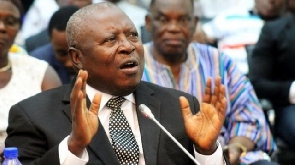The need to have mutual trust, respect and fellow feeling towards Persons with Disability (PWDs) has taken the forefront of our social discussion because law, morality and societal principles in this day and age demand it.
A person with disability (disabled person) may have a problem with a part of his or her body or mind. As a result, the person may not be able to walk, use the arms and hands, hear, see, feel, talk or think. It is sometime possible that such a person may not be able to do any of these things at all. This situation unjustifiably make some members of our society to accord little or no consideration and respect to such a person. We most of the time fail to understand and appreciate the gravity of their (PWDs) situation, they are looked down upon and underappreciated. They are often ignored and denied the attention they deserve. We must however have it clear that PWDs are fellow human beings who should be accorded with due dignity, just like anyone else. In my earlier piece, it was incontestably indicated that disability is never inability. There are countless handicapped persons who have accomplished great exploits. Today, Hudson (U.K), although he is without hands, is the leading mathematician in the world. Even though, Helen Keller was blind, deaf and mute from childhood, she became an enviable prolific writer and educationalist. Franklin Roosevelt D, the president of United States of America between 1933 and 1945, was severely handicapped by polio. Although he was totally deaf, Ludwig Van Beethoven composed musical masterpieces. Inestimable physically challenged persons out there participate and emerge triumphantly in weight lifting, horse race, marathon race in wheel chairs and other challenging sports. Indeed, PWDs do not lack the ability to think, learn, create and perform. We therefore owe a sense of duty to PWDs since they are co-actors in our development.
Section 10 of the Disability Law encourages both the government as well as the private businesses (which employ persons with disability) to get jobs for them. It is mesmerizing to note that private corporations who undertake this worthwhile duty will be exempted from some taxes. However, Section 11 of the Law also enjoins the government or a private company who employs a person with disability to provide such tools and materials that are needed for him or her to perform the job well.
Persons with Disability(PWDs) may also need a special environment in order for them to work. In cases where the person’s disability was caused by an accident at the workplace, the employer should not just sack him but to train such a person for a new job and move or send him to another section of the work where he or she will be able to work. The new work place should have conditions and surroundings fit the person’s disability. These are done in toting up with any payment that must be given to the person for the injure suffered in cause of his employment.
According to section 16 of the Disability Act, every parent, guardian or custodian, or anybody taking care of a child with disability who is old enough to go to school, should take such a child to school. The school may be a usual one where all children attend or any special one that such a child should attend due to his or her disability. Section 18 of the law makes it possible for children with disability to have the right to go to school for free. Specials schools are also to be provided for PWDs who cannot attend the normal schools solely because of their disability.
Finally, section 20 of the Act makes it an offence for any head of a school ( say a headmaster/headmistress, principal, or headteacher) to refuse to admit a child simply because of his disability, unless the child has a disability that makes him only able to attend a special school.
In bringing my discourse to an end, let me use this medium to say bravo to Ghanaian Center for Democratic Development (CDD-Ghana) for the various seminars they have organized to sensitize the public about the Disability Law and the introduction of the abridged version of Act 715 with the aim of making it understandable and more handy to the general public, PWDs and service providers who need to be informed on disability issues.
Remember that disability is no person’s slot. You could be a victim tomorrow, hence the need for you to be careful of how you treat persons with disability.
REFERENCE
1.The Disability law (Popular Version), by C.C.D-Ghana.
2.The Physically Challenged-How should they be treated? By Carsley Sei. Daily Graphic,Thursday, August 9, 2007. Page 19.



















